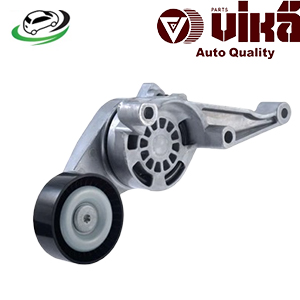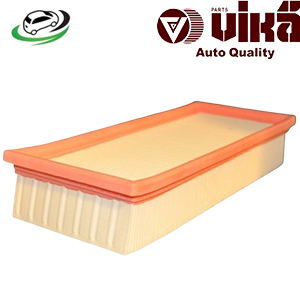-18%
Get AUDI A3 8V 1.4 e-tron / VW Jetta VI 1.4T/ Jetta VI 1.4T Hybrid Air filter 04E129620
Air filters are a crucial part of any vehicle’s engine system, ensuring that only clean air reaches the engine for combustion. While they may seem like simple components, their role is vital to the efficiency, longevity, and performance of your vehicle. This detailed explanation will cover what air filters are, their types, the benefits of using them, and maintenance tips to ensure they function optimally.
What is an Air Filter?
An air filter is a device that removes contaminants from the air before it enters the engine. In an internal combustion engine, the combustion process requires a mixture of fuel and air. The air filter ensures that this air is free from dust, dirt, and other particles that could harm the engine. Without an air filter, these contaminants can cause severe damage, leading to inefficient engine performance or even catastrophic failure.
A typical engine air filter is positioned inside a housing in the intake system. The filter traps unwanted particles and prevents them from entering the cylinders, where they could cause damage by creating friction or blocking important passages.
Types of Air Filters
There are various types of air filters, each suited to different vehicles, environments, and performance needs.
- Paper Filters
- Material: Typically made from pleated paper, these are the most common types of air filters found in vehicles. The paper is folded in such a way that it provides a large surface area for capturing contaminants.
- Cost: Paper filters are affordable, making them a popular choice for most standard cars.
- Efficiency: Paper filters are effective at trapping dirt and debris but need to be replaced regularly.
- Lifespan: These filters are disposable and generally require replacement during routine vehicle servicing, typically every 15,000 to 30,000 miles depending on driving conditions.
- Foam Filters
- Material: These filters are made from sponge-like foam that is often coated in oil.
- Use: Foam filters are commonly used in off-road vehicles or dirt bikes due to their ability to filter out larger particles such as sand and mud.
- Cost: Foam filters tend to be more expensive than paper filters but are also more durable.
- Efficiency: Foam filters offer excellent filtration, especially in dusty or dirty conditions.
- Lifespan: They can be washed and reused, giving them a longer lifespan than paper filters.
- Cotton Gauze Filters
- Material: These filters are made of cotton gauze that is usually oiled to improve its filtering capabilities.
- Use: Cotton gauze filters are often favored by performance enthusiasts due to their superior airflow characteristics.
- Cost: They are more expensive than both paper and foam filters.
- Efficiency: These filters offer a balance between airflow and filtration efficiency.
- Lifespan: They are washable and reusable, making them a long-term investment.
- Synthetic Filters
- Material: Made from synthetic fibers, these filters are designed to offer a higher filtration rate.
- Use: Synthetic air filters are often found in high-performance vehicles or extreme environments.
- Cost: They tend to be priced higher due to their superior material quality and filtration capabilities.
- Efficiency: They provide excellent airflow and filtration performance.
- Lifespan: Synthetic filters are reusable and can be cleaned multiple times before needing to be replaced.
- Carbon-Activated Filters
- Material: These filters contain activated carbon, which helps in absorbing odors and harmful fumes in addition to filtering dust and debris.
- Use: They are common in vehicles operating in areas with high levels of pollutants or unpleasant smells.
- Cost: Carbon-activated filters tend to be more expensive due to the added functionality.
- Efficiency: They not only trap physical contaminants but also reduce pollutants and odors.
- Lifespan: Their lifespan is comparable to paper filters but might need replacement earlier depending on the environment.
Benefits of Air Filters
- Engine Protection
The primary function of an air filter is to prevent debris, dust, and other particles from entering the engine. These contaminants can damage internal engine components like the cylinders, pistons, and valves, leading to significant wear and tear. A high-quality air filter ensures that your engine is well-protected, prolonging its life. - Improved Engine Performance
Clean air is essential for efficient combustion. If the air filter is clogged, the engine won’t get enough air, leading to poor combustion and reduced engine performance. A clean air filter allows for proper airflow, ensuring the engine runs smoothly and efficiently, resulting in better throttle response, acceleration, and overall power. - Fuel Efficiency
When the air filter is dirty, the engine has to work harder to pull air in, which can reduce fuel efficiency. By maintaining a clean air filter, your engine can operate more efficiently, resulting in better fuel economy. In some cases, a clogged air filter can reduce fuel efficiency by as much as 10%. - Environmental Benefits
A clean air filter helps reduce vehicle emissions by ensuring the engine burns fuel efficiently. When the engine is starved of air, the fuel-air mixture becomes too rich, leading to incomplete combustion, which increases the emission of harmful pollutants. Keeping your air filter clean can help lower your car’s environmental impact. - Extended Engine Life
By preventing harmful particles from entering the engine, air filters help reduce wear and tear on key engine components. Over time, this can lead to fewer repairs and a longer overall lifespan for your vehicle’s engine.
Maintenance Tips for Air Filters
- Regular Inspection
It’s important to inspect the air filter at regular intervals, even if it hasn’t reached the recommended replacement mileage. Factors like driving conditions, weather, and location can all affect how quickly the filter gets dirty. For example, if you often drive on dirt roads or in heavy traffic, your air filter will need more frequent inspections. - Replace or Clean Depending on the Filter Type
- Disposable Filters: Paper and some synthetic filters are disposable and should be replaced rather than cleaned.
- Reusable Filters: Foam, cotton gauze, and synthetic filters can often be cleaned and reused. Cleaning should be done according to the manufacturer’s recommendations, which typically involve rinsing the filter, allowing it to dry, and applying an appropriate oil or cleaning solution if needed.
- Follow Manufacturer Recommendations
Always adhere to your vehicle’s maintenance schedule and follow the manufacturer’s recommendations for air filter replacement or cleaning. In most cases, air filters should be replaced every 15,000 to 30,000 miles, but this can vary based on the type of filter and driving conditions. - Check for Signs of Damage
During routine checks, look for signs of damage such as tears, holes, or excessive dirt build-up. If the air filter is damaged, it should be replaced immediately, as it won’t be able to provide adequate protection for the engine. - Pay Attention to Performance Changes
If you notice a decrease in engine performance, such as sluggish acceleration, poor fuel efficiency, or unusual engine sounds, it might be time to inspect or replace the air filter.
Conclusion
The air filter may be a small and often overlooked component, but it plays a vital role in maintaining your vehicle’s engine health, performance, and efficiency. Understanding the different types of air filters and following proper maintenance procedures can help you get the most out of your vehicle, saving you money on fuel and repairs in the long run. Whether you’re driving in the city, off-road, or in extreme conditions, having a well-maintained air filter is key to ensuring a smooth, efficient, and long-lasting engine performance.
Follow us on Facebook for more parts.




Reviews
Clear filtersThere are no reviews yet.